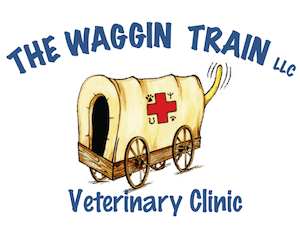What is the most important thing to know if your cat is pregnant?
Dr. Broussard
The Waggin' Train Veterinary Clinic
How soon should you bring your pet to see a veterinarian if you suspect your cat is pregnant?
What are some signs of pregnancy in a cat?
How will a veterinarian determine if your cat is pregnant?
What are some things people can do at home to prepare for their cat's labor?
How can you help your cat recover after giving birth?
Will my cat naturally know how to take care of her kittens?
Cat Pregnancy - FAQ
Dr. Broussard
The Waggin' Train Veterinary Clinic
What is the first thing I'd need to do after finding out my cat is pregnant?
Do I need to buy anything in particular for my pregnant cat?
How often will my pregnant cat need to see a veterinarian?
Does my cat need to rest while pregnant?
If you still have any other questions and you'd like to reach out to us, you can call us directly at (337) 223-9581, you can email us, or you can reach out on Facebook if you'd like. But please do reach out, we'll try and get back to you as fast as we can.

